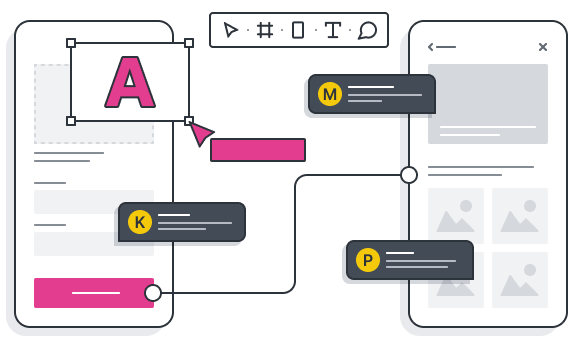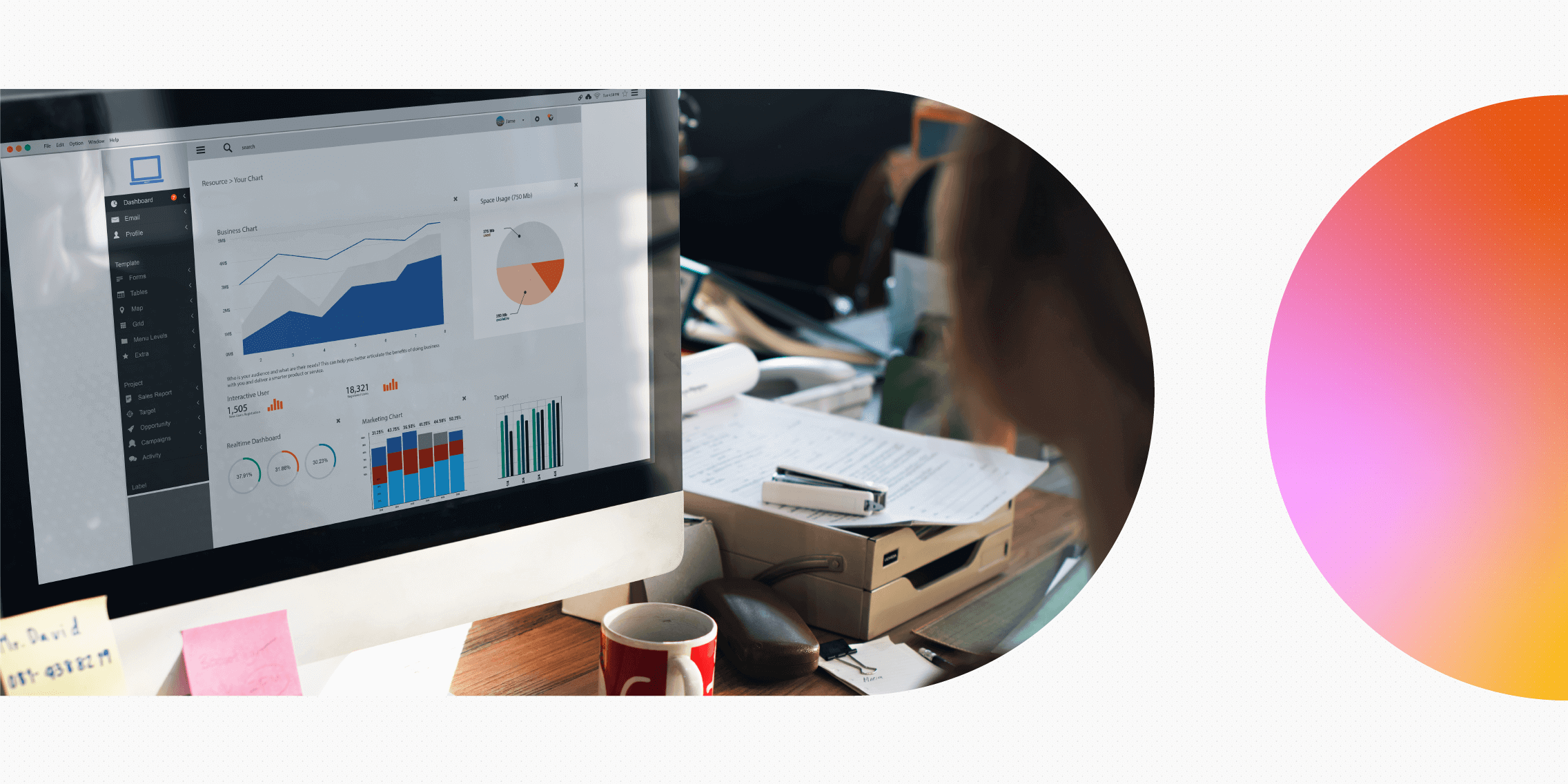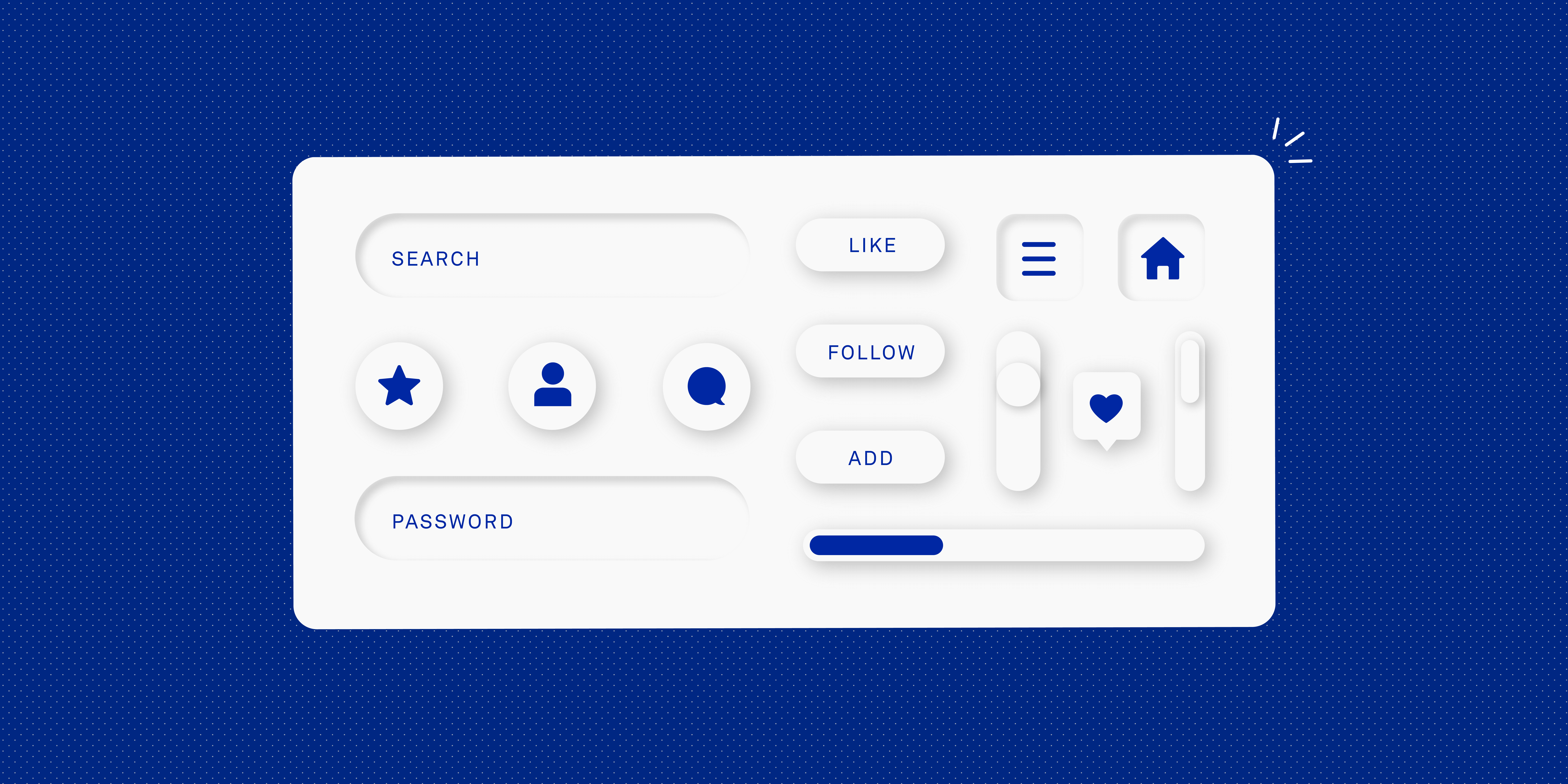The terms “user research” and “UX research” tend to be used interchangeably—but are they really the same thing? Does it even matter?
If you’re a user or UX researcher, you may be curious about any differences between the two terms, and what that might mean in relation to your role. Perhaps you’re considering a career in user/UX research and want to get clarification before you start any kind of training.
Either way, the topic of user research vs. UX research is increasingly garnering attention in the field. But is it just semantics or are there meaningful distinctions to be made? Let’s find out.
Are user research and UX research the same thing?
Before we try to answer this question, let’s go right back to basics with a definition of each term.
User research is the process of studying your target users. Target users are the people whose needs and preferences you want to understand and ultimately meet. The purpose of user research is to deeply understand your target users’ behaviours, emotions, needs, motivations, goals, and frustrations within a given context—for example, within the context of trying to eat healthily or maintain a sustainable fitness regime.
UX research, or user experience research, can also be defined as the study of target users. And, just like user research, UX research seeks to establish a deep understanding of the target users’ goals, behaviours, feelings, needs, and pain-points. We can expand on this definition slightly, though, to add that UX research focuses particularly on the users’ experience with a specific product or service—be it an existing product or service, or one that’s about to be designed.
Based on those definitions, we can draw the initial conclusion that UX research is simply a more specific subset of user research.
But does that hold true in practice? Let’s dive a little deeper.
UX research vs. user research: similarities and overlap
We’ve established that both UX research and user research are concerned with the study of target users. And, given that the terms are mostly used interchangeably, it’s no surprise that there’s plenty of overlap between the two.
Here’s what UX research and user research have in common:
- They both focus on understanding target users. The ultimate goal of both user research and UX research is to gain insight into how and why target users behave, think, and feel a certain way, and to uncover their goals, desires, preferences, and challenges in relation to a particular task or context.
- User research and UX research follow the same high-level process of identifying and recruiting target users (or people who represent the target user group), selecting an appropriate research method, analysing and interpreting research data, and translating it into actionable insights.
- They each rely on both quantitative and qualitative research methods. Whether you call it user research or UX research, the research methods available remain largely the same—surveys and questionnaires, user behaviour analysis, interviews, ethnographic studies, and focus groups (to name a few). You can learn more about quantitative vs. qualitative research here.
- User research and UX research involve similar tools. There’s considerable overlap between the tools required for user and UX research. Both make use of survey tools, remote interview and video conferencing software, diary study tools, analytics tools, and project management, collaboration, and presentation platforms.
- They are both bound by research ethics. User research and UX research involve studying, interacting with, and gathering data on real people—and that requires careful consideration of, and adherence to, user research ethics.
Based on that list, it’s hard to imagine how any distinction can possibly be drawn between the two. But some people do indeed consider them slightly different disciplines based on some subtle nuances. Let’s explore those now.
User research vs. UX research: some subtle differences between the two
If you zoom in very closely on what user research and UX research entail—and consider the finer details of when, how, and why they’re carried out—you can find some subtle differences between the two.
Here’s how you might distinguish between user research and UX research:
- Breadth and scope of focus: User research, by definition, is the broad study of target users. It’s not necessarily done within the context of product design; it might relate to market research, for example. UX research, on the other hand, is firmly embedded in the UX design process. It’s carried out with the goal of improving a user’s experience with a specific product or service. In that sense, user research is more holistic and all-encompassing, while UX research is much narrower in focus.
- Nature of research activities: This difference in scope and focus filters through to the nature of the research carried out. Because it’s a broader field, user research can involve studies that are not directly related to a specific product or service. For example, a user researcher may conduct a study to learn more about how people of different age groups use social media. With UX research, on the other hand, research activities focus on learning about the target users in relation to a specific product. This usually involves having the user interact directly with the product (or service, or a prototype thereof), or running an activity that gives you insight into how they want a particular product to function—for example, conducting a card sorting exercise to help you determine the best information architecture for your website.
- Use of insights and findings: User research, in its broadest form, is not necessarily used to inform the design and direction of a product. It can do that, but it may also be used to devise effective marketing strategies, to improve customer service, to develop a strong brand, or to identify important market trends. UX research, however, is almost always used to gain valuable insights that can inform the strategy, design, and evolution of a specific product, service, or user experience.
- Expertise: UX research and user research require almost identical skill sets, with one key difference. By definition, user researchers don’t necessarily have to be experts in user experience (UX) design and all its underlying principles. However, you wouldn’t land a job as a UX researcher without some prior knowledge of UX.
It’s important to note that these potential differences are not always evident or even relevant in practice. There are plenty of user researchers who work in UX; the terms, and job titles, are used interchangeably 99% of the time.
On that note, it’s worth exploring what happens when you look for “user researcher” and “UX researcher” jobs. This gives us great insight into how employers define and use the two job titles, and whether or not there’s a difference in terms of tasks and responsibilities. So let’s do that!
User researcher vs. UX researcher job titles: do employers distinguish between the two roles?
We’ve outlined some theoretical differences between user research and UX research. But do these subtle nuances have any real-world implications?
To see whether or not there’s a tangible, practical difference between the two, we ran a little experiment. We searched for both “user researcher” and “UX researcher” jobs online and compared the results. Here’s what happened.
- On Indeed, a search for “user researcher” jobs in the United States returned just over 600 results. A search for “UX researcher” jobs returned just over 300 results. On LinkedIn, the results were about the same, with around 250 jobs for each.
- When searching for “user researcher” jobs on Indeed, the large majority of the jobs shown were for the following roles: user experience researcher, UX researcher, senior user researcher, usability researcher, design researcher, and staff researcher.
- When searching for “UX researcher” jobs on Indeed, the majority of the jobs shown were for the following job titles: UX researcher, user experience researcher, usability researcher, senior UX researcher, and UX researcher and designer.
It would seem that it makes no difference if you search for user researcher or UX researcher roles: you’ll ultimately get the same mixture of job titles in the results.
So how about salary? Interestingly, the Indeed salary portal makes no distinction between “UX researcher” and “user researcher”. Search for both “user researcher” and “UX researcher” salaries and you won’t get a single salary figure. Instead, you’ll be shown salary data for a variety of job titles such as user experience researcher and user experience designer.
The closest match, in this case, is “user experience researcher” (which is just the UX researcher job title written out in full). If you’re interested, the average salary for this role is $124,000 in the United States (based on data collected by Indeed).
And what if we compare UX researcher job descriptions to user researcher roles? This should give us some insight into whether or not employers actually distinguish between the two in terms of function, tasks, and responsibilities.
Here are the job descriptions we compared:
- Trust and Safety User Researcher at TikTok, described as follows:
“In this role, you will play an integral part in providing hands-on experience and proficiency in managing tracking surveys and quantitative research. You will conduct in-depth data analyses, develop and implement quantitative research methods, and track user sentiments to inform our business decisions.”
- Lead User Researcher at Kooth, a digital mental health and wellbeing company, described as follows:
“As the Lead User Researcher, you will be responsible for conducting research and utilising mixed methodologies to gather insights on user needs, behaviours, and motivations. You will use this information to inform and improve the product design and user experience of our service, as well as contribute to the experience strategy.”
- UX Researcher, Pixel, at Google, described as follows:
“As a User Experience Researcher (UXR), you’ll help your team of UXers, product managers, and engineers understand user needs. You’ll work with stakeholders across functions and levels and have impact at all stages of product development. You’ll play a critical role in creating useful, usable, and delightful products.”
- UX Researcher, Qualitative, at Meta, described as follows:
“Our UX Research team is designing for the global diversity of human needs, which requires us to deeply understand the behaviours of the people behind them. Our researchers tackle some of the most complex challenges to gain deeper insights into how people interact with each other and the world around them, and work collaboratively to contribute new ideas to products that impact the experiences of billions of people on a global scale.”
And here’s what we found.
There are many common threads between the roles in terms of tasks and responsibilities:
- Both the user researcher and UX researcher roles emphasise a user-centric approach.
- All roles involve conducting user research in the form of surveys, interviews, and usability testing.
- Every role includes analysing data to inform decision-making.
- All roles require cross-functional collaboration with product managers, designers, engineers, and/or business stakeholders.
As well as one notable difference: the user researcher roles have a strong strategic focus, emphasising the importance of aligning research outcomes with business goals. While all job descriptions involve conducting user research, the UX researcher roles are notably more hands-on with research execution.
Does this mean that employers view user researchers and UX researchers as two different roles?
Possibly, and not necessarily. The difference between the UX researcher and user researcher roles we’ve studied (and bear in mind, it’s a very small sample!) may be down to differences in how each company and team is set up, as well as their general focus, rather than any major fundamental differences between the user researcher and UX researcher job titles.
Ultimately, it’s important to evaluate each job ad in relation to the context: the company posting it, the seniority level of the role, and the size and structure of the wider team.
Generally speaking, though, user researchers and UX researchers are viewed as one and the same. Whether advertising for a UX researcher, a user researcher, or some other variation on the job title: employers appear to require the same skills, methodologies, and mindset.
UX research vs. user research: the final verdict
We’ve outlined all the ways in which user research and UX research are identical, and pointed out some differences.
So what’s the verdict? Is it necessary to distinguish between the two, or can we accept that the terms are interchangeable despite some subtle nuances?
In the end, it really boils down to context. In essence, user researchers and UX researchers do the same thing. They conduct research to build a deep understanding of their target users.
In a UX and design context, these insights are used to make smart design decisions that will improve the user’s experience of a given product. Outside of UX, user research can play a critical role in informing business strategies and improving marketing efforts. These differences may or may not come into play depending on the company and the team into which the researcher is hired.
For all intents and purposes, we expect that the terms will continue to be used interchangeably. Distinctions can be drawn upon closer inspection, but ultimately, these differences have little to no impact in terms of the skills you’ll need to learn, the qualifications you’ll need to obtain, and the roles you can apply for.
Planning a career in user or UX research? Here’s how to get started
Whether you want to focus on user research for UX and product design, or build a research career in another domain—you’ll need to master the art and science of conducting user research. This includes:
- Learning how to apply both quantitative and qualitative research methodologies, from user surveys and user interviews to focus groups, diary studies, and more.
- Developing strong data analysis skills in order to extract meaningful insights from your research that can be used to inform actions and decisions.
- Understanding the importance of user research ethics to protect the safety and well-being of your research participants.
- Building proficiency in user research tools—from interview and transcription software to analytics tools, survey tools, and more.
- Honing essential soft skills such as collaboration, communication, presentation, problem-solving, and critical thinking.
If you’re new to user research (or want to consolidate and verify your existing research skills), consider a formal user research qualification. This will ensure that you cover all essential ground, teach you how to apply your research skills in a real-world context, and equip you with both a credible certification and a professional research portfolio—allowing you to demonstrate what you’re capable of and confidently apply for user research (and UX research) roles.
Want to learn more about UX and user research in the meantime? Check out these posts:
- 3 Real-world research case studies from Airbnb, Spotify, and Google—and what we can learn from them
- What exactly does a UX researcher do?
- The importance of user research in UX design





